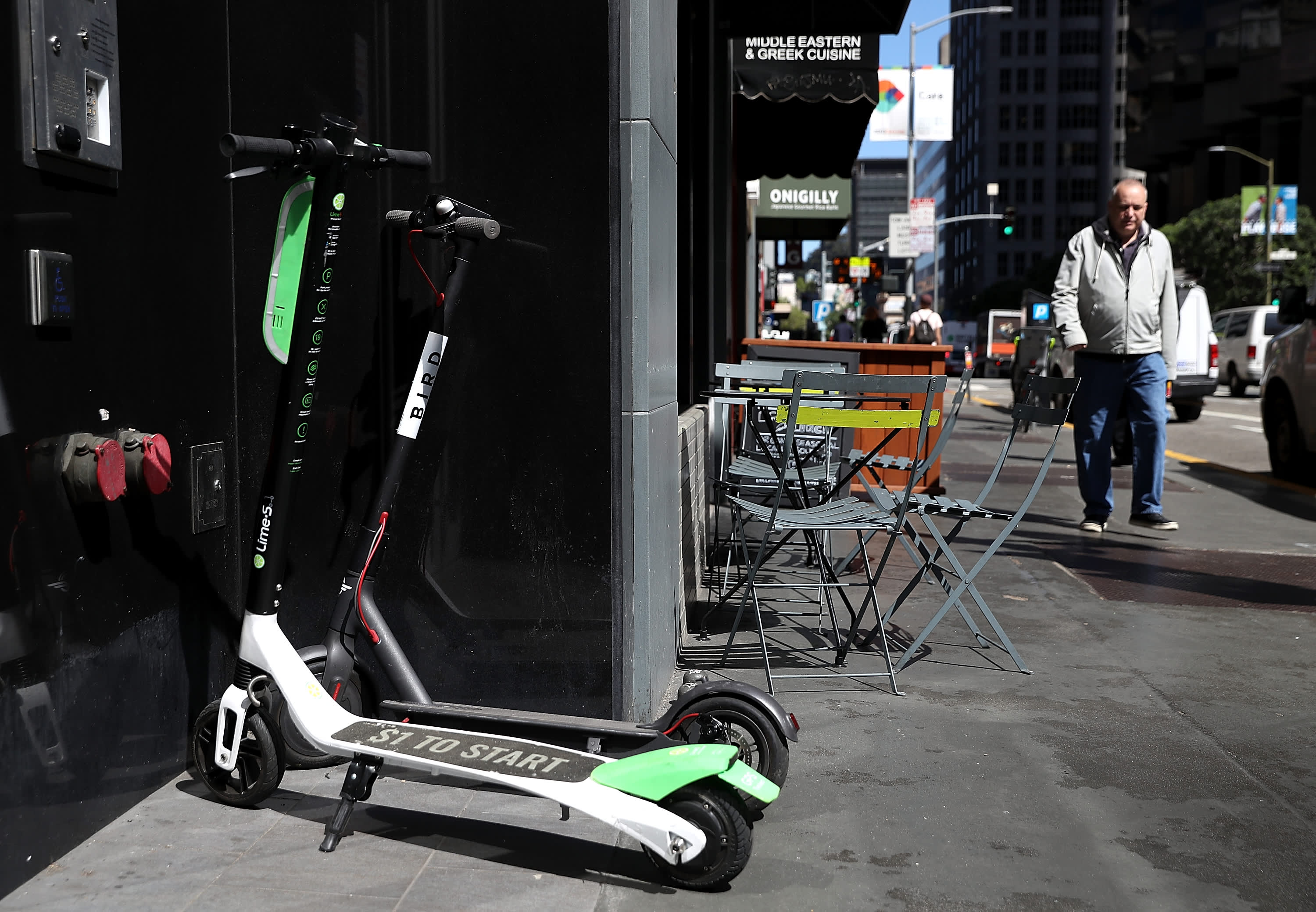
Bird and Lime scooters sit parked in front of a building on April 17, 2018 in San Francisco, California.
Justin Sullivan | Getty Images
Electric scooter start-up Lime has raised a ton of money since launching in 2017 as part of a massive land grab in the fast-growing market. But the company says that, by one important measure, it expects to become profitable as soon as next year.
Lime is aiming to be "EBIT positive" by 2020 as it looks to build a more sustainable business, a company spokesperson told CNBC. That means it will have earnings before accounting for interest expenses and some taxes. The spokesperson said that profitability is a top priority and that the company is in a strong position to achieve that goal.
The Wall Street Journal first reported on Lime's plans on Tuesday as part of a broader focus on profitability in Silicon Valley. Lime, which was most recently valued at $2.4 billion and has raised well over $700 million, is looking to pull in more capital by December or January, according to the Journal. Meanwhile, it's also relying on debt to fund further expansion and maintenance of its fleet of scooters.
Lime has grown rapidly over the past year, reaching more than 100 million total rides in September, up from 6 million in 2018, and it now operates in 120 markets around the world. Earlier this month, the company launched its first U.S. ad campaign in Los Angeles, which is running on billboards and at local events. Last month, CEO Brad Bao told CNBC's Squawk Alley that the company will pursue an IPO in the future.
The electric scooter industry has become increasingly crowded as Spin, Uber's Jump and Bird jockey for market share with Lime, deploying thousands of dockless scooters in cities around the world.
The companies are seeking paths to profitability amid growing investor skepticism around cash-burning tech businesses, underscored by the precipitous fall of WeWork and the ongoing public market struggles at Uber and Lyft.
Read the full report from The Wall Street Journal here.
0 Comments